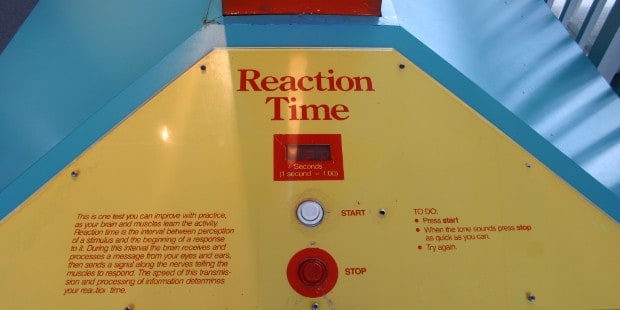 I’m still in travel mode, so I’m still offering guest posts over the next couple of weeks on a regular basis. Today’s guest post is by Christopher Mackay. I met Christopher during his time spent in Victoria, where we discovered that we had a mutual love of productivity tools, systems and tech — something that’s very rare in my hometown. Christopher describes himself as a designer, photographer, artist, atheist, lover of dogs, cats, music, art, science, history, hiking, running, cycling, reading and all things Apple. I describe him as somebody I’m glad I’ve gotten to know. You can follow him over on Twitter.
I’m still in travel mode, so I’m still offering guest posts over the next couple of weeks on a regular basis. Today’s guest post is by Christopher Mackay. I met Christopher during his time spent in Victoria, where we discovered that we had a mutual love of productivity tools, systems and tech — something that’s very rare in my hometown. Christopher describes himself as a designer, photographer, artist, atheist, lover of dogs, cats, music, art, science, history, hiking, running, cycling, reading and all things Apple. I describe him as somebody I’m glad I’ve gotten to know. You can follow him over on Twitter.
I’m always rushing at the last minute to get places on time. Sound familiar?
I know it. I try to avoid it. I’ve almost convinced myself that no one has noticed it. But I’ve been doing it for years.
No more.
Getting to places on time has meant driving over the speed limit or not taking the time to shave. A meeting might be a five minute walk from the office, but I leave so late that I have to drive — thinking it’ll save time — & and end up parking a six-minute walk from the meeting. It might mean not being as prepared as I could be. It might even mean being late.
How does this happen?
- I forget about a meeting until the morning of the meeting.
- I rationalize that it’s a 25–30 minute drive to the meeting, when it’s really 45 (plus 15 minutes parking & walking).
- I forget to account for extra driving time due to winter weather (roughly 10 months of the year here).
- I’m not really conscious of how long my morning routine takes, so I underestimate it.
- I realize at the last minute that I have to buy gas.
- I simply overbook my days.
In the end, what does any of this really matter so long as I actually walk through the client’s door in time? Running late can mean:
- I take risks by driving too fast (as Holden says to Leon at the beginning of Blade Runner, “Reaction time is a factor”).
- Driving too fast is stressful (will I get a ticket? will I get in an accident? Either way, more speed makes it much, much worse).
- Because driving too fast is stressful, I don’t arrive ready — I arrive stressed. I know what you’re thinking: you can handle it. Maybe. Even if your client doesn’t notice, you’re not likely at your sharpest.
- I was typically just arriving in time. This meant I wouldn’t arrive in time to socialize, which is often much of the value of a face-to-face meeting.
- Despite driving so fast, I was only saving a few minutes of travel time.
All of this is the predictable result of not having planned my time properly. By getting up a few minutes earlier (but still getting enough sleep):
- I’m less likely to be rushing out the door at the last minute.
- I’m less likely to forget something important.
- Slowing down only costs me a few extra minutes, but I arrive for my meetings relaxed and ready to be friendly and productive. I waste a lot less gas, too.
In the end, it doesn’t take much to give yourself enough time that you aren’t always rushing at the last minute. Here’s my mix of tech and tactics:
Set Yourself Up to Succeed
- At the end of every day review the next day’s calendar and task list. (Don’t be surprised by this suggestion. — it’s basic GTD review.)
- Get up on time. Showering/shaving/caffeinating takes longer than you think. Freaky Alarm for iOS will drive your sleep-partner mad, but you won’t sleep in. Use it sparingly.
- Have a backup alarm for those days when you forget to take your phone off of vibrate mode. (Hey, you’re tired when you go to sleep.)
- Schedule for success. Try to arrange meetings for times when you know you can get there. Late morning works best for me, and lunch makes a natural wrap-up time.
- Plan ahead. Make sure your weekly review takes meetings into account. Have a meeting task template in OmniFocus (or whatever you use) that ensures you get gas the day before and get your ducks in a row.
I’m getting to meetings with time to spare now, but a key insight came when I realized I was running my projects the same way I was getting to meetings. Tasks were bunching up against deadlines, stress was building up, and quality was suffering.
So slow down. Make the time you need so you don’t have to go so fast at the last minute. A little planning can often be just what you need to give yourself enough time to react, because reaction time is always a factor.
Photo credit: Ryan Somma (CC BY 2.0)

